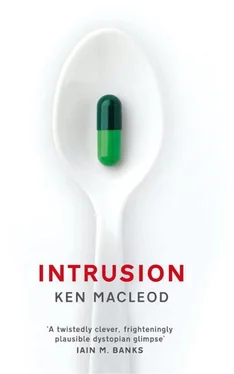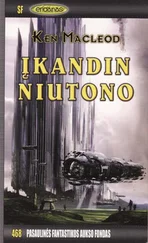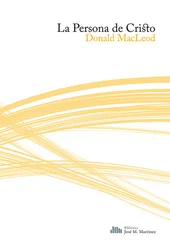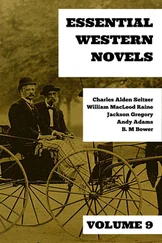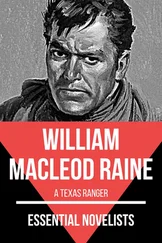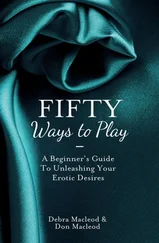‘ParentsNet,’ said Maya, looking away a little.
‘Oh,’ said Hope. ‘Well. That’s interesting. I start a thread and suddenly everybody knows my business.’
‘You know how it is,’ said Maya, sounding defensive for the first time. ‘It’s all out there. But the good thing about it is that you now have an army of flying monkeys.’
‘I didn’t ask for an army of flying monkeys!’
Maya looked abashed. ‘Well, sorry, at least we did help you there, and… Uh, do you have time for a coffee and a chat, maybe?’
Hope felt suddenly reckless. She deserved a bit of relaxation – not to mention explanation – more than she needed an hour’s pay.
‘Yes!’ she said. ‘Let’s do that.’
She expected Maya to ask her to suggest somewhere to go, but instead Maya nodded and smiled and set off down the street. Hope fell in beside her. On reaching the next junction, Maya put on a set of glasses and looked around. As she did so, Hope noticed what it was about the woman’s left hand that had struck her as odd a few minutes earlier. She wasn’t wearing a monitor ring.
Hope hadn’t seen a woman of childbearing age without a monitor ring since she didn’t know how long. It wasn’t compulsory, certainly not, but it was such a badge of adulthood – and indeed freedom, compared to the old system of monthly pregnancy tests and certification cards – that girls put them on long before they had the slightest intention or legal opportunity to drink alcohol, smoke or get pregnant. She’d seen ten-year-olds showing them off as if flashing engagement-ring rocks, though in these cases Hope rather suspected the rings were fake.
Maya led the way across the road, took a few confident steps onward, then stopped at the door of a small shop that didn’t at all promise coffee. Its faded sign still said Newspapers and Tobacco and it sold sweets, convenience food and emergency groceries. Maya strode inside, nodded to the Sikh woman at the counter, and asked for two coffees.
‘Real or instant?’
‘Real, thanks.’
The shopkeeper opened an airtight jar and scooped some ground coffee into a paper bag.
‘Milk?’ she asked.
Maya looked at Hope.
‘What kind would you like?’ Maya asked.
‘Uh, thanks, cappuccino, why not?’
‘Ah,’ said Maya. ‘I think the choice here is with or without milk.’
Hope shook her head. ‘OK, without, thanks.’
‘Just one,’ said Maya.
The shopkeeper measured a few mils of milk into a small plastic bottle, and popped a lid on it.
‘Five pounds,’ she said.
‘What!’ said Hope.
Maya grinned and raised a finger. ‘Wait.’
She paid, and then led the way through a plastic tape curtain to the back. Hope fought down a momentary apprehension and followed, out through a door to a back green with cracked concrete paths. Just ahead, in the middle of the green, was an area covered by a shallow roof of two sloping sheet-diamond panes, visible only from the drizzle-drops that misted them, and held up by four stout wooden posts. In its shelter were half a dozen tables with benches, and a scatter of small round tables with plastic chairs. There was a good and noisy crowd of twenty-odd people at the tables, eating, drinking, some of them smoking. It had been years since Hope had seen so many people smoking, openly, in one place. At the back, a young Asian guy sat behind a table, keeping an eye on people pouring water from electric kettles as they made their way past with cafetières and mugs.
Hope stopped dead.
‘I can’t go in here,’ she said. ‘I’m pregnant.’
Maya, a step or two in front, looked over her shoulder.
‘I know,’ she said. ‘You just take the ring off.’
‘But it’s dangerous,’ Hope said.
‘The smoke?’ Maya flapped a hand in front of her face. ‘Pffft!’
‘Well, no, I mean taking the ring off. It’ll get logged!’
‘The Health Centres look for patterns,’ said Maya. ‘Not odd incidents. Relax.’
Not feeling at all relaxed, Hope turned the monitor ring to loosen it, slid it slowly off her finger and stuck it in the bottom of her jeans pocket. She looked at the pale indentation around her finger above the gold wedding ring, and felt naked.
They found a table. Maya took the packet of coffee and the bottle of milk to the queue. Hope sat down. She could smell coffee, tea, bacon – rolls bought somewhere else, she guessed – and cigarette smoke. The crowd looked like a mixture of art students and building workers. Quite a few of both types were wearing glasses and obviously into some virtual scene. While Maya waited for the boiling water, Hope put her own glasses on. The overlay snapped into view, showing, as she’d expected, people posing as their online avatars: two of the art students looked like dragons, others wore strange strappy costumes or had features like manga characters, all big eyes and chiselled cheekbones. Four lads stooped intently over a tabletop football match on a pitch the size of two chessboards. Hope was amused to see that they kept their mugs and plates off the virtual field. In a far corner, Indian Air Force jets made repeated bombing runs on a forested mountain slope, red and black blooms rising above the green.
Maya joined the queue and glanced back. Hope caught her features in the glasses, framed the face, and – guessing at the spelling of her name – tapped out a search. About a second later she was looking at a full-face photo of Maya, and all her occupational and educational details. Brunel MA (Hons.) in law and government, gap year in Nepal, front-line post in an Advice Centre, campaigns against refugee deportations, member of Liberty and Amnesty, assiduous writer of letters to the web… a troublemaker, without a doubt.
She took the glasses off, rather guiltily, when Maya returned with a full cafetière and two mugs.
‘Isn’t this illegal?’ Hope asked. ‘An outdoor smoking area?’
Maya shook her head. ‘It’s not open to the public and they’re not serving the coffee or tea. The shop sells very expensive dry coffee and tea bags. What the customers do with it is their business. There just happens to be a place out the back where as a favour the customers can use the family’s kettles.’
‘And seats, and tables, and shelter.’
‘Well, you know how it is with extended families,’ said Maya, hand poised over the plunger. ‘They need lots of room for gettogethers.’
‘The inspectors will find some way to shut it down. Otherwise more people would be doing it.’
Maya smiled. ‘More are. More than you’d think. Smoke-easies. Shebeens. Drinking sheds.’ She tapped her glasses, in her shirt pocket. ‘There’s a black app for finding them.’
Hope was not interested in black apps. She felt disquieted that Maya actually had one on her glasses.
‘No, I meant like cafés and so on.’
‘That’s not how it works,’ Maya said. ‘If you’re running a café or a pub, the problem with a workaround like this is that it isn’t covered by insurance. Suppose someone were to scald themselves with the kettle! Or trip and hurt themselves! Nightmare. You run into all kinds of legal minefields even before the health inspectors come down on you. And if they do, they can close a café. The most they can do with this is stop the shop owner from letting people use their back yard. Or someone else’s back yard, for all I know. It’s legally quite tricky. In fact what usually happens is the shop owner just stops for a bit, and a place just like it pops up somewhere nearby. Rinse and repeat.’
She pushed the plunger down, and poured. Hope breathed in fragrant steam, blew, and sipped.
‘Why did you come here anyway?’ she asked. ‘Instead of to a café, I mean? You don’t smoke, do you?’
Читать дальше
